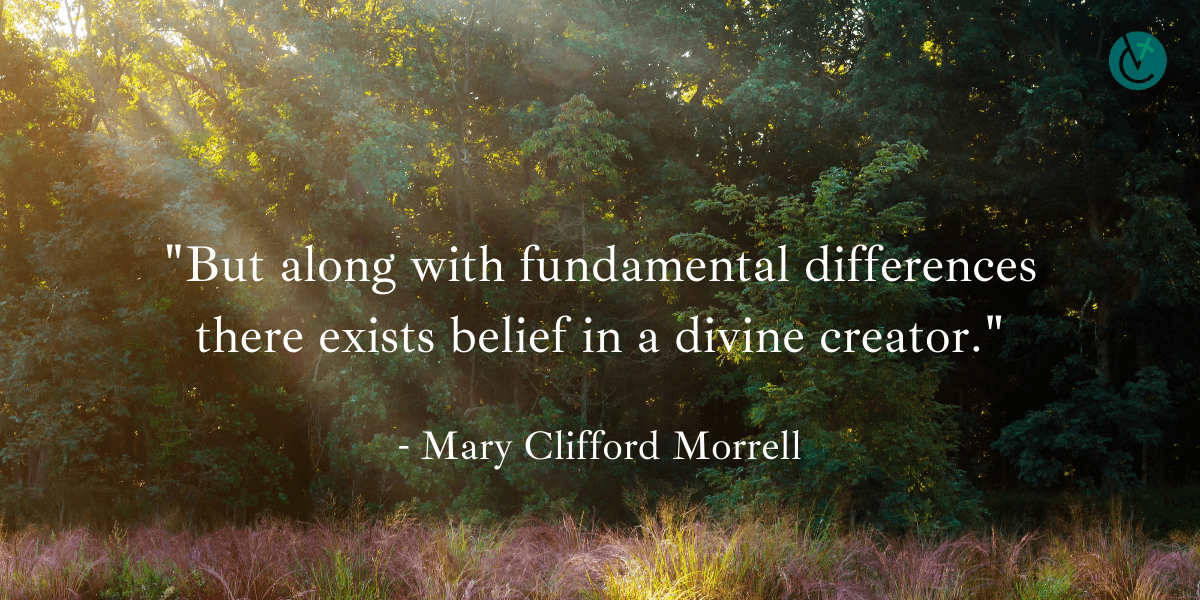
People of all faiths share common concerns
For some 1.2 billion people throughout the world, Catholicism holds answers to the profound questions of humanity: Who is God? What is the meaning of life? What is the purpose of suffering? What happens after death? How should we live? What should we believe?
The answers are expressed in the profession of faith that is the Nicene Creed. Catholics are also guided by the both the Old and New Testaments and are meant to live and share the Good News of the Gospel of Jesus Christ. Worship, especially the Sacrament of Eucharist — receiving the Body of Christ — is meant to transform how the faithful live in the world. Catholics are a people of communion based on faith.
Burlington Bishop Christopher Coyne explained, “We celebrate communion with others of our faith, united in our adherence to The Creed and the Church’s dogma and doctrines, as then signified and made manifest in the communion we share in the Eucharist.”
Christianity, along with Judaism, Islam and Hinduism, are among the major religions of the world. For some, a creed of faith is essential, for others the focus is on right actions. But, along with fundamental differences there exists belief in a divine creator, a need for worship and prayer and a dedication to grow in the moral and spiritual life.
Rabbi Amy Joy Small of Ohavi Zedek Synagogue in Burlington observed, “Christianity was born out of Judaism, worshipping one God, sharing [with Jews] a belief in ethics and moral responsibility as human beings and reaching to our highest level of discerning good and bad, right and wrong.”
But while the oneness of God is a fundamental belief, “right behavior, not faith, is at the core of Jewish tradition and practice. God expects our obedience to the commandments,” Rabbi Small pointed out.
As monotheistic religions, Judaism, Islam and Christianity are referred to by scholars as Abrahamic religions. They share the same Semitic roots and worship the God of Abraham, who entered into a covenant relationship with God.
While Muslims see Abraham as a prophet, the Jewish people refer to him as “Abraham our father,” patriarch of the Jewish nation. The idea of peoplehood is central to the Jewish faith, explained Rabbi Small. “The oneness of the Jewish people is part of our religious understanding. It is played out in our expression of prayer to connect, not just with God, but with Jews around the world.”
The Jewish prayer book is a thread that maintains that connection. “Jewish prayer life belongs to every single Jew,” Rabbi Small stressed. “The rabbi does not have a special connection to God. Each person speaks to God through prayer.” The Torah, the Tanakh (Hebrew Bible) and 613 Mitzvot (commandments) are among the guiding texts of Judaism.
In the Islamic religion there is one essential statement of faith: “There is no God but God, and Muhammad is His Prophet.” Muslims believe that Muhammad was the final prophet who received revelations from God through the Angel Gabriel. These revelations are recorded in the Quran, their sacred text.
The Vatican II Declaration, “Nostra Aetate,” says of Muslims, “Though they do not acknowledge Jesus as God, they revere Him as a prophet. They also honor Mary, His virgin Mother; at times they even call on her with devotion. In addition, they await the day of judgment when God will render their deserts to all those who have been raised up from the dead. Finally, they value the moral life and worship God especially through prayer, almsgiving and fasting.”
One of the most ancient religions is Hinduism. It is a family of traditions, with no founder and no identifiable beginning. Hindus believe in Brahman, the Divine, the cause and sustainer of creation, whose nature is present in all living beings. Hindus also believe in reincarnation of the soul and strive to live a virtuous life so they may one day escape the cycle of rebirth and become one with Brahman.
Unlike Catholicism, Hinduism embraces a great diversity of beliefs. It does not have one creed or guiding sacred text, but a number of texts that offer teachings and guidelines instead of commandments for human behavior. Worship and prayer are important practices, undertaken both at home with religious icons, small shrines or altars, and in community.
Hinduism teaches, “This is the sum of duty: Do not do to others what would cause pain if done to you.”
This is the Golden Rule, a principle of all established religions, each presenting it in their own form. Christians know it from the words of Jesus: “In everything do to others as you would have them do to you.”
— Originally published in the Spring 2022 issue of Vermont Catholic magazine.

